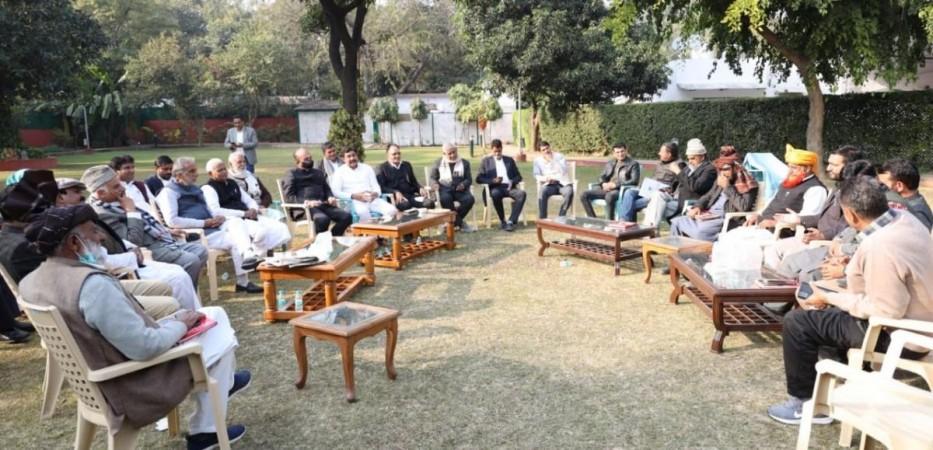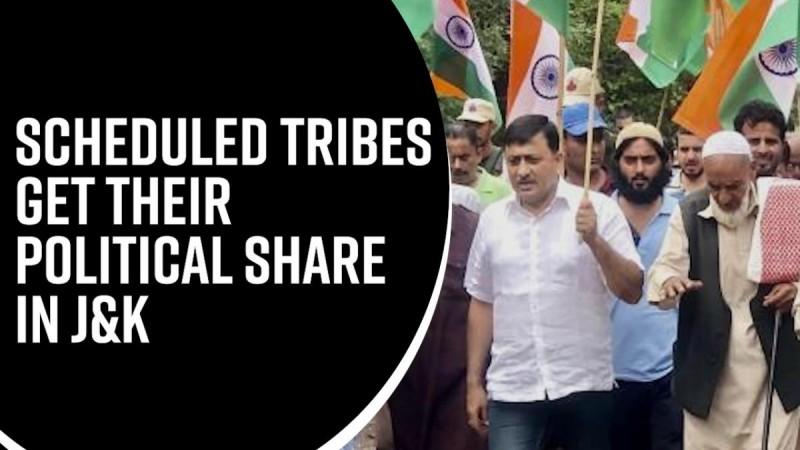Amid intense politics over proposals of the Delimitation Commission, the nomadic Gujjar and Bakerwals communities of Jammu and Kashmir have hailed the decision to grant political reservation to the Scheduled Tribes (STs) in the coming assembly elections.
In its proposal, the Delimitation Commission has suggested reserving nine seats in the Legislative Assembly for Scheduled Tribes and seven for Scheduled Castes.
While Scheduled Castes are already getting political reservations, the STs will get nine reserved seats for the first time in the history of Jammu and Kashmir. In the coming assembly polls, nine seats would be reserved for STs in J&K.
Unlike other parts of the country, there was no political reservation to the STs in the legislative assembly or Lok Sabha seats of the erstwhile state of Jammu and Kashmir. Political reservation to STs would be granted after the abrogation of Article 370.

Gujjar-Bakerwal delegation visits Delhi to thank Union Government
On Tuesday Gujjars and Bakerwals from Jammu and Kashmir's tribal community visited New Delhi to thank Prime Minister Narendra Modi for recommendations of the Delimitation Commission that proposed reserving nine Assembly seats in Jammu and Kashmir for STs.
The delegation led by the president of All Indian Gujjar Mahasabha Sardar Khan also met Union Minister Krishan Pal Gurjar at New Delhi.
"A large number of people of Gujjar Bakerwal community live in Jammu and Kashmir. They had many demands continuously over the years. Governments came and went but no one paid attention to their problems or demands. PM Modi has listened to all our demands and granted forest rights and ST reservation", Gurjar tweeted.
Gurjar said that ST communities in Jammu and Kashmir were elated over the proposal of the Delimitation Commission to reserve nine seats for them in the assembly.

STs empowered politically after the abrogation of Article 370
Although all political parties claimed to minimize the woes of the ST communities, the political reservation was not granted to these communities before the abrogation of Article 370.
J&K is the only state in northwest India having a share of nearly 15 percent population of STs. As per the 2011 census, the total population of STs in J&K counted 14.9 lakh among them 13.2 lakh are Muslim, 1 lakh are Buddhist and about 67,000 Hindu.
After decades-long struggle tribes of the erstwhile state of J&K were granted ST status in the year 1991 when the state was under the Governor's rule. In J&K, four communities, namely Gujjar, Bakarwal, Gaddi, and Sippi were notified as the Scheduled Tribes vide the Constitution (Scheduled Tribes) Order (Amendment) Act, 1991.
Since 1991, STs were agitating to get a political reservation in J&K like other parts of the country. It was only after the abrogation of Article 370, their demand was fulfilled.

















